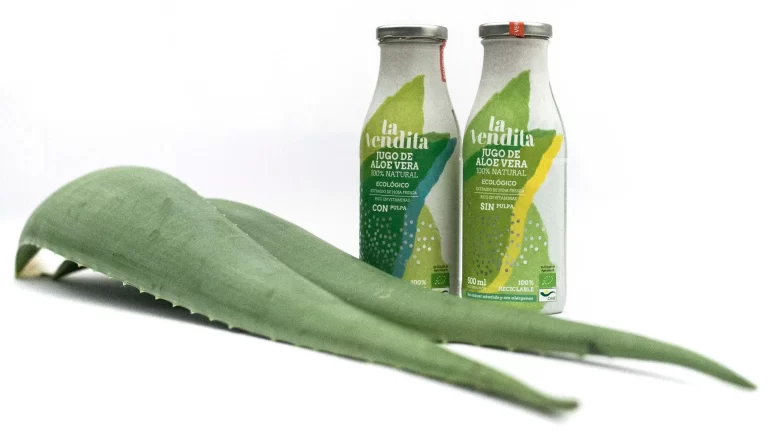

Acid reflux: what is it?
Acid reflux can be irritating, uncomfortable, and even downright annoying to those who suffer from it. The triggers for this condition include large meals, smoking, vaping, pregnancy, stress, age, medications, excessive caffeine, or eating spicy foods.
Acid reflux (gastroesophageal reflux) occurs when stomach contents return to the esophagus from the stomach. The lower esophagus sphincter muscle doesn’t function properly, which prevents stomach acid from flowing into the esophagus.
Acid reflux is characterized by heartburn as a common symptom. As well as heartburn, there may also be a sour or bitter taste in the mouth, vomiting, mouth sores, burning of the tongue, bad breath, and in some cases, regurgitation of food.
Whenever you experience pain or heartburn that is severe or lasting, you should speak with your doctor.
The Aloe Vera plant has been found to be an anti-inflammatory agent, aid in reducing acid production, and relieve symptoms of acid reflux without having any adverse effects.
Aloe Vera: what is it?
The perennial succulent plant Aloe Vera grows in tropical areas and has been used both orally and topically throughout history. Known for its healing properties, the leaves are filled with a clear gel that contains more than 200 active ingredients and is used for treating and improving a wide range of health conditions and burns.
Aloe Vera is typically associated with skincare, but research suggests it may have benefits for inner health as well.
In the same way that Aloe Vera gel is used for local discomfort from burns or other skin conditions, Aloe Vera juice or gel eaten orally has an internally soothing effect.
Acid Reflux: What Causes It?
Chronic acid reflux, or GERD (gastroesophageal reflux disease), occurs when acidic contents from the stomach leak into the esophagus. In most cases, this occurs when a valve in your esophagus does not close properly after food reaches your stomach.
Everyone suffers from acid reflux occasionally, but if you experience symptoms more than twice a week for several weeks and are taking antacids or medications that are causing the symptoms to return, it may be time to consult with your doctor to avoid more serious problems and start treatment now.
It is possible for some people to suffer from persistent heartburn, while others might experience chest discomfort, hoarseness, or swallowing difficulties.
The benefits of using Aloe Vera for acid reflux


Aloe Vera is a medicinal plant rich in minerals, vitamins, and amino acids, and research has proven to be anti-inflammatory, antibacterial, antiviral, and antiseptic while assisting wound healing and preventing ulcers.
As a result of being used internally, Aloe Vera can help lower small intestine bacteria growth and reduce acid reflux occurrences. The presence of bad bacteria can also cause bloating, belching, and weakened lower esophageal sphincters, which prevent stomach acid from reaching the esophagus. Acid reflux can also be caused by poor digestion, and Aloe Vera has been found to boost blood circulation within the digestive system, thereby alleviating indigestion and heartburn.
As acid reflux damages the esophagus over time and Aloe Vera’s anti-inflammatory properties may help reduce the pain and soothe an inflamed esophagus. Due to its polysaccharides, Aloe Vera also stimulates white blood cells and improves blood circulation, which boosts the immune system.
Combining its anti-inflammatory benefits with its ability to repair damage caused by persistent acid reflux, Aloe Vera may help repair damage caused by acid reflux.
For treating acid reflux symptoms, Aloe Vera can be beneficial in the following ways:
To prevent heartburn and aid digestion, Aloe Vera juice or gel can be taken throughout the day, especially before meals.
- Aloe Vera juice or gel can also be taken after meals to help alleviate symptoms, especially when you feel heartburn or indigestion coming on.
- The bitter taste of Aloe Vera can be effectively disguised when made into a refreshing drink with other ingredients that won’t aggravate acid reflux.
When you feel stomach discomfort or experience diarrhoea, stop taking Aloe Vera. In rare cases, Aloe Vera can cause laxative side effects. Check with your doctor if the pain persists after stopping Aloe Vera use for a few days.
Warnings and risks
Most people consume purified Aloe Vera products without experiencing any side effects. Still, any time you introduce a new supplement into your body, it is vital to make sure you know the risks and warnings to avoid adverse reactions.
Aloe Vera should not be consumed internally by pregnant women or those trying to become pregnant. Ask your doctor for the best treatment if you have acid reflux during pregnancy.
The external use of Aloe Vera is safe for children and infants, but it should be used under the supervision of a doctor if used orally as a supplement.
Before taking Aloe Vera, consult with a doctor if you are taking medications already prescribed.
It is advised that diabetics or anyone using medications to manage their blood glucose consult a doctor before using Aloe Vera as it can dangerously lower their blood glucose levels.
If you are allergic to any plants in the (Liliaceae) family, which also includes asparagus, onions, garlic, leeks, chives and tulips, avoid using Aloe Vera as it may cause side effects.





